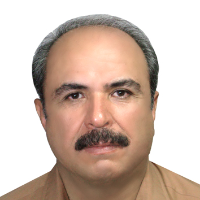Investigation of Bacterial Contamination in Automatic Teller Machines in the Center of Iran
The use of automatic teller machines (ATMs) daily has increased the chances of hand‑borne transmission of microorganisms to the machine’s surfaces, and they can have an important role in microorganisms’ transmission to individuals. This study aimed to investigate microbial contamination in ATMs in the center of Iran.
This cross‑sectional study was used to collect samples from the keyboards and monitors of the ATMs in Kashan. After 24 h of incubation, the swabs were inoculated on different selective media, including MacConkey agar and blood agar. Microbiological tests were used to confirm bacterial isolates.
The most frequently contaminated ATMs were government banks, with 69% contamination. The most frequently isolated bacterium was Staphylococcus epidermidis) 37/77%). The other bacteria were also identified, including Bacillus spp. (17/77%), Escherichia coli (7/77%), Micrococcus spp. (7/77%), Myroides odoratus (4/44%), Klebsiella pneumoniae (2/22%), Staphylococcus aureus (2/22%), Staphylococcus saprophyticus (1/11%), and Klebsiella oxytoca (1/11%), respectively.
The most tested ATM keyboards in this study were contaminated with at least one microorganism. According to our results, it is recommendable to disinfect the hands after entering public places to hinder the spread of critical pathogens.
-
Assessment of the impact of tourism attractions with an emphasis on economic and environmental sustainable: A case study in Isfahan
Narges Mohammadzadeh, Jamal Mohammadi, Musa Dehghani, Fatemeh Akbarzadeh, Seyed Mahdi Takhtfiroozeh, *
Environmental Health Engineering and Management Journal, Autumn 2024 -
The approach to the treatment of venomous and poisonous arthropod bites and stings in ancient medicine: A narrative review
, Shahrad Tajaddini, Masoomeh Varzandeh *
Journal of Emergency Practice and Trauma, Summer-Autumn 2023



